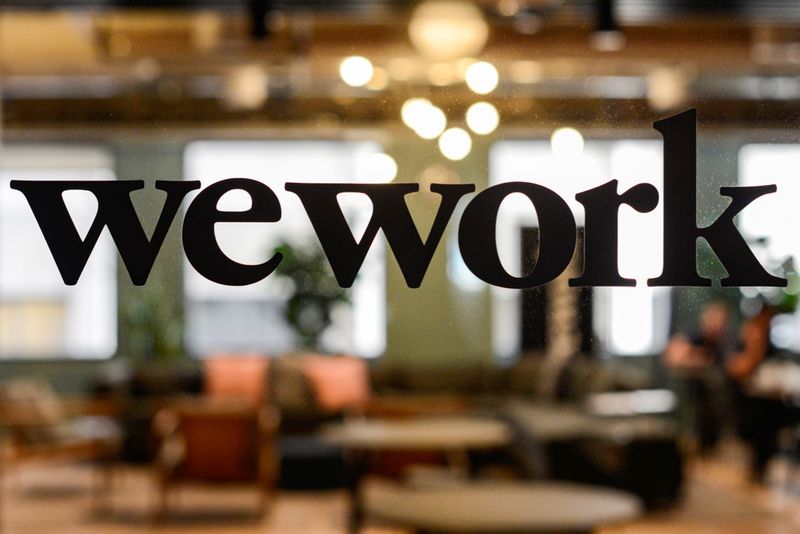By Joshua Franklin and Anirban Sen
(Reuters) - An unlikely figure helped set the spark for SoftBank Group Corp's $9 billion deal to take WeWork public.
Adam Neumann, WeWork's co-founder and ousted chief executive, met in November with the head of the special purpose acquisition company (SPAC) that would go on to clinch a deal with WeWork, according to people familiar with the matter.
Neumann was locked in a fierce legal battle at the time with SoftBank over a $3 billion deal for a portion of his and other investors' stake in the office space-sharing company.
The introduction between Neumann and BowX Acquisition Corp co-chief executive Vivek Ranadivé over a Zoom call was facilitated by a senior UBS Group AG (SIX:UBSG) capital markets banker, the sources said. It preceded discussions the SPAC chief had with WeWork.
Neumann played up WeWork's prospects on the call and the conversation piqued Ranadivé's interest, the sources said.
Ranadivé's SPAC had been looking for an acquisition target after raising $420 million in an IPO in August.
The ensuing deal announced on Friday cushions some of the blow SoftBank has suffered with its investment in WeWork. It has invested at least $18.5 billion in WeWork since 2017, including $6 billion when a fundraising round valued the startup at $47 billion in January 2019.
The sources described the meeting between Neumann and Ranadivé on condition of anonymity. Representatives for Neumann, WeWork, UBS and SoftBank declined to comment. Ranadivé did not respond to multiple requests for comment.
Neumann, who has kept a low profile since his unceremonious ouster after WeWork's failed IPO attempt in 2019, has had a contentious relationship with SoftBank.
The Japanese tech investment giant pushed for his ouster before it took over WeWork in a $10 billion rescue financing deal in October 2019. It later backtracked on an agreement to buy $3 billion of WeWork shares from Neumann and other investors, citing criminal and civil investigations into WeWork, the company's failure to restructure a joint venture in China, and the shift to remote work due to the COVID-19 outbreak.
One week before the case was due to go to trial, SoftBank reached a settlement with Neumann and other investors in February to pay out about half of its original commitment. It did not want the potential legal liability to jeopardize the SPAC deal, the sources said.
Neumann also stands to benefit from the SPAC deal as he still has a roughly 10% stake in WeWork, worth around $790 million.
LIMITED OPTIONS
Neumann had no role in the SPAC deal after his discussion with Ranadivé, the sources said. Ranadivé and his team began discussions with WeWork in December. SoftBank Chief Operating Officer and WeWork Executive Chairman Marcelo Claure led the negotiations on behalf of SoftBank, with SoftBank CEO Masayoshi Son also stepping in, one of the sources said.
WeWork was apprehensive about opting for a traditional IPO following its failed attempt in 2019, and its options for a SPAC deal were limited. BowX was the only SPAC that expressed a serious interest in WeWork, two of the sources said.
Ranadivé, a 63-year-old technology executive turned investor and owner of the Sacramento Kings basketball team, said last week WeWork stood to benefit from a shift by many companies to a hybrid model of working that calls for employees to come in to a workplace just a few days a month.
He called the shift a tailwind for WeWork.
The deal was received well by Wall Street, with BowX shares ending trade on Friday up 20% following the merger's announcement.
WeWork's valuation was revised down in the final stages of the negotiations. Investors participating in the private investment in public equity (PIPE) transaction managed to drive down WeWork's valuation in the agreement from $9.9 billion to $9 billion, including debt, the sources said. The size of the PIPE increased to $800 million from $500 million.

Ranadivé and the rest of the BowX senior team will receive WeWork shares worth almost $90 million after investing $11.7 million of their own money. They will be restricted from selling these shares for the first year unless certain share price targets are met.